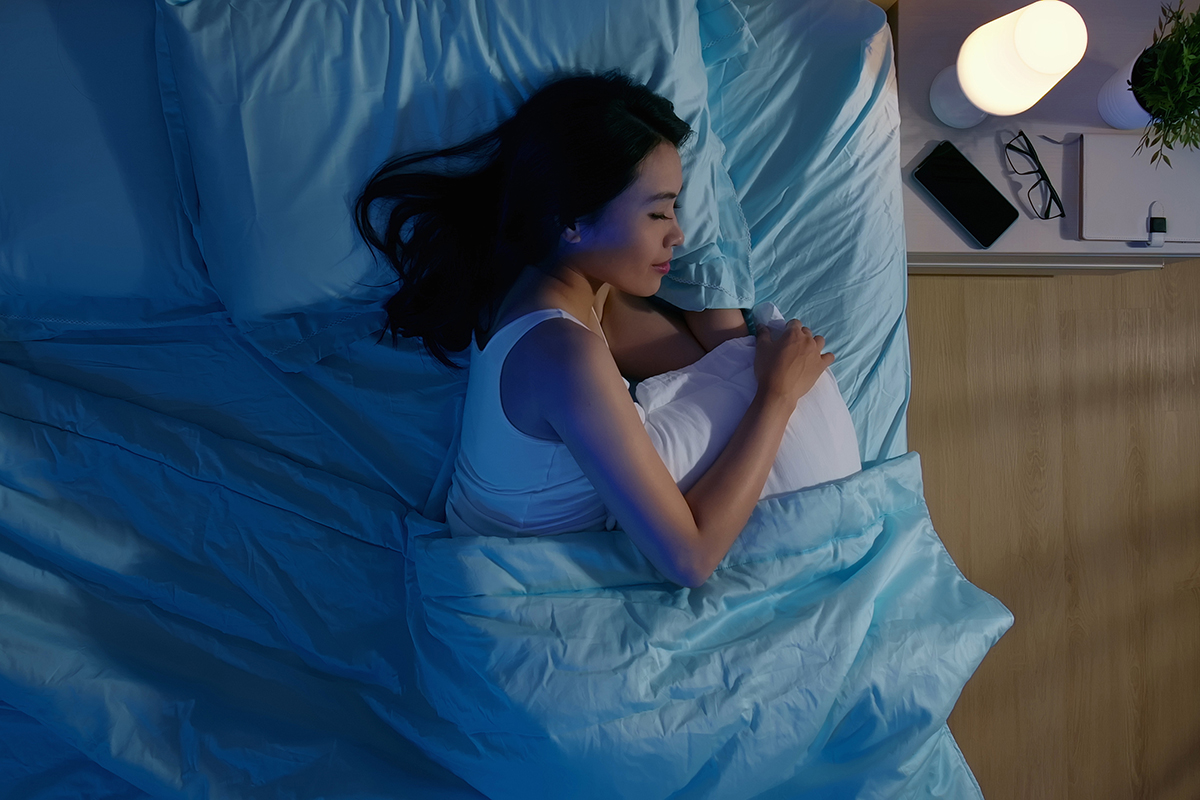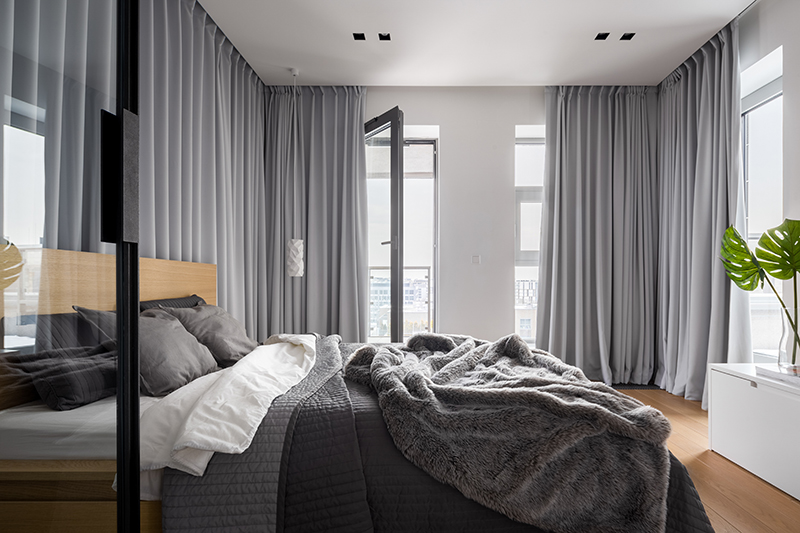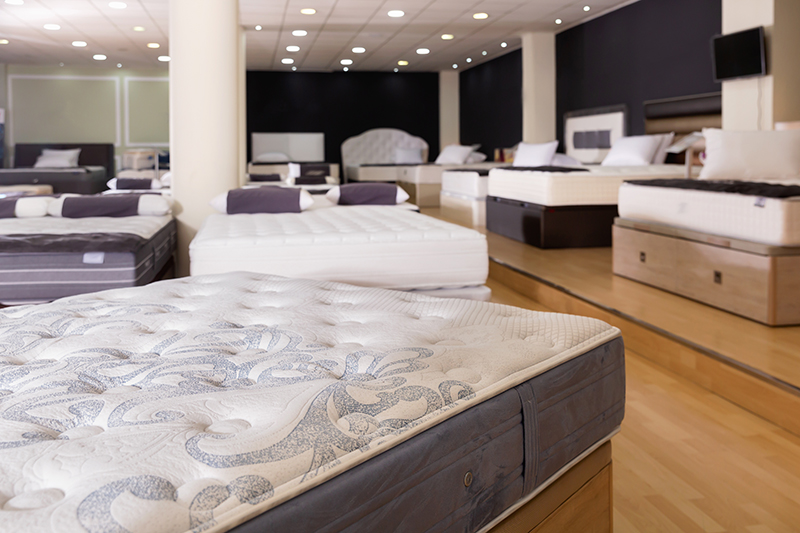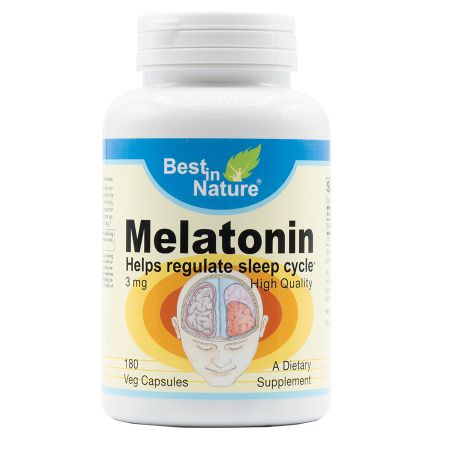
Reviewed and Updated: March 21st 2025
Struggling to get enough quality sleep? You're not alone. Good sleep is as essential as a balanced diet and regular exercise for our health. However, achieving enough quality rest can be a challenge for many. Part of the quest for rest might be creating your ultimate sleep sanctuary. What does that mean? In short, optimizing your sleeping area while addressing or eliminating sleep obstacles.
Let's talk about turning your bedroom into a sleep sanctuary. This article focuses on practical changes and simple habits that can significantly enhance your sleep quality.
Block Out Light

Light is a major disruptor of the sleep-wake cycle. Consider investing in blackout curtains or heavy blinds to block external light sources, such as street lamps and car headlights. If you're sensitive to even the smallest amount of light, using a sleep mask can provide an added layer of darkness, helping to create the ideal conditions for restful sleep.
Keep It Cool
As the body prepares for sleep, its core temperature naturally drops, and a cooler might help you fall asleep faster. The ideal temperature for sleep is between 60 and 67 degrees Fahrenheit (15-19 degrees Celsius).
If air conditioning isn’t a possibility, you can also look into more airy bed materials that won’t retain as much body heat.
[READ: How to Wake Up with More Energy]
Block Out Noise or Replace It with Soothing Sounds
Of course, nobody wants to go to sleep in a noisy environment. If you can’t get absolute silence because you’re in a densely populated city for example, you might consider using earplugs to block things out. Or you can even try to mask bad noise with good by way of a white noise machine. Soothing sounds such as raindrops, gentle wind, or ocean waves can also help create a calming atmosphere conducive to better sleep.
Consider Replacing Your Mattress

An uncomfortable mattress can lead to sleep disturbances such as tossing and turning. If your mattress is over 8-10 years old, it might no longer provide the support and comfort you need, which could affect your sleep quality.
Waking up with stiffness or pain could be a sign that it's time to consider a replacement. When choosing a new mattress, look for one that supports your preferred sleeping position and body type, ensuring a better night's sleep.
Choose the Right Bedding
Choosing the right bedding is crucial for comfort. Opt for breathable materials like cotton or bamboo, which help regulate body temperature, ensuring you stay cool and comfortable throughout the night.
Pillows also play a pivotal role; select one that supports your head and neck appropriately, depending on your sleeping position—whether it's on your back, side, or stomach. Personalizing your bedding allows you to create a sleep environment tailored to your unique needs and preferences.
Declutter Your Space
A cluttered room can lead to a cluttered mind, inhibiting your ability to relax. You may not choose to give your residence the Marie Kondo treatment but many find minimalism to promote feelings of calm that may lead to better sleep. Even just decluttering your bedroom on its own will most likely provide calming benefits.
Put Away Electronics
Screens emit "blue light," a type of light that can interfere with melatonin production, the hormone that regulates sleep cycles. Melatonin helps signal to your brain that it is time to wind down and get ready to sleep.
Blue light suppresses melatonin levels, making it harder to fall asleep and stay asleep. It's recommended to avoid blue light or use blue light filters on devices 1-2 hours before bedtime. Exposure to blue light in this windows can interfere with your ability to sleep.
Opt for Calming Colors
The color of your bedroom walls and decor can significantly influence your mood. Soft, soothing colors such as pastels, muted blues, and gentle greens are ideal, as they help create a tranquil and restful environment. It's best to avoid bright and stark colors, which can be stimulating and counterproductive to relaxation. This simple change can enhance the overall calmness of your space, making it easier to sleep.
Caffeine and Alcoholic Beverages
It is important to take note of your caffeine and alcohol intake. Caffeine is a stimulant that blocks adenosine, a chemical in the brain that promotes sleep and relaxation. Consuming caffeine in the afternoon or evening can interfere with the onset and deeper stages of sleep; thus reducing the quality of your rest. It is generally recommended to avoid caffeine for 6 hours or more before bed. Some people are even more sensitive to caffeine so this window can be even longer.
While alcohol might help you fall asleep initially because of its sedative effects, it disrupts the sleep cycle as the night goes on. Alcohol can lead to more wakefulness throughout the night. It also reduces the time spent in REM (rapid eye movement) sleep, which is the restorative, deep sleep your body needs for memory consolidation and physical recovery. This is why a night of drinking and many hours of sleep won't leave you feeling rested and restored.
Look into Sleep Accessories
Pajamas Investing in quality pajamas made from soft, breathable fabrics can enhance your comfort throughout the night.
Additionally, a good sleep mask can be invaluable for those who require complete darkness to sleep well.
A white noise machine can help with masking noises but sometimes you can’t use one. Earbuds like the Bose Sleep Buds or similar products are an option.
Habits to Help You Fall Asleep More Easily
Developing habits that signal to your body that it's time to wind down for the night is essential for improving sleep quality. Close to bedtime, it's beneficial to avoid stimulating activities and the use of electronics. Instead, consider engaging in practices like gentle yoga, deep breathing exercises, or listening to calming music, and avoiding drinking caffeine and alcohol 6 hours before bedtime. These activities can help prepare your body for sleep, making it easier to fall and stay asleep.
You can create and follow an entire sleep routine if you need the rules and structure.
Supplements That May Help
A few supplements might help with achieving better, more restful sleep.
Melatonin - This hormone is associated with the circadian rhythm and is popuarly thought to help with sleep*
SleepBest is Best in Nature's blend of multiple herbs associated with helping achieve better rest.
Bottom Line
Making these adjustments to your bedroom and nightly routine can transform your space into a sleep sanctuary that invites restful nights. Remember, the goal is to create an environment that suits your personal preferences and maximizes your comfort. Whether it involves choosing the color of your walls, selecting the type of bedding, or deciding on the sounds you find soothing, the right setup can make falling and staying asleep more seamless and natural.
This article is provided for informational purposes only and is not intended to be used as medical advice. If you have immediate concerns about your health, please seek the help of your physician.
*These statements have not been evaluated by the Food and Drug Administration. Products are not intended to diagnose, treat, cure or prevent disease.








Validate your login
Sign In
Create New Account